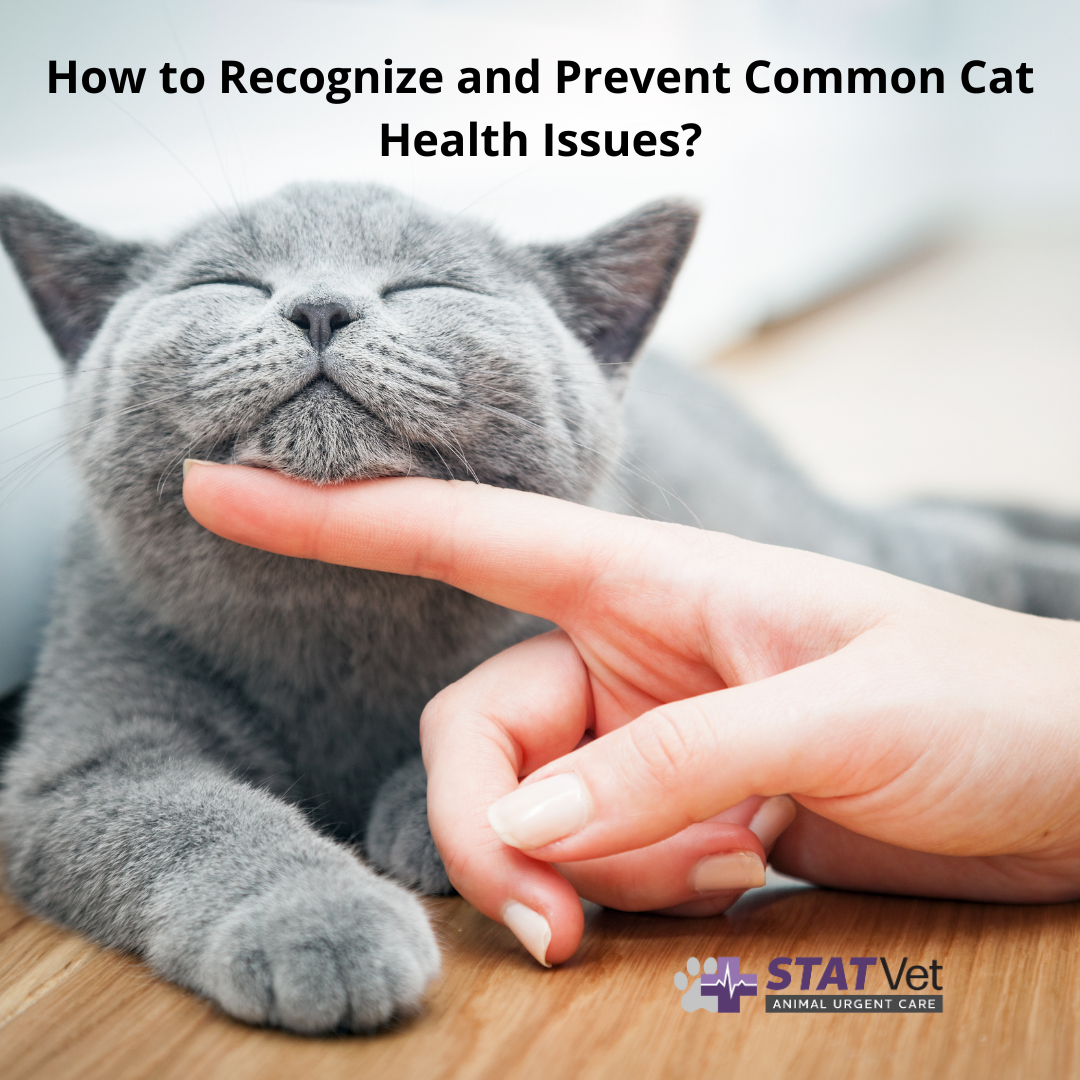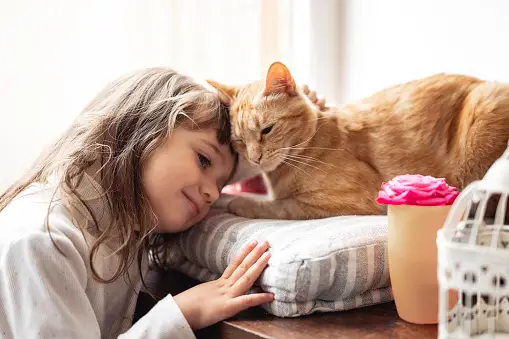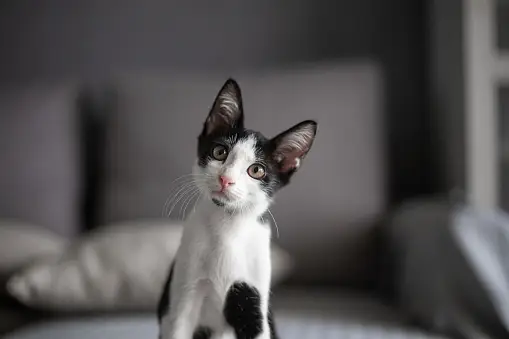
14 Dec Keeping Our Feline Friends Healthy
Cats are beloved companions that bring joy and warmth to our homes. As responsible pet owners, we must be aware of common health issues that can affect our feline friends. Recognizing the signs and taking preventive measures are essential for ensuring your cat’s long and healthy life. This article will explore the top cat health issues the average cat owner may encounter and discuss proactive steps to keep your furry friend in the best possible condition.

Obesity
Obesity is a prevalent health issue among cats, and it can lead to various other problems, such as diabetes, arthritis, and heart disease. Maintaining a healthy weight is crucial for your cat’s overall well-being. To prevent obesity, provide a balanced diet, measure food portions, and engage your cat in regular physical activity. Playtime with interactive toys and scheduled exercise can help keep your cat fit and happy.
Dental Problems
Dental issues are common among cats, leading to discomfort, pain, and systemic health problems. Regular dental care is essential to prevent conditions like gingivitis and periodontal disease. Brush your cat’s teeth regularly using a feline-friendly toothbrush and toothpaste. Additionally, offer dental treats or toys to help reduce plaque and tartar buildup.
Hairballs
Cats are meticulous groomers, and while grooming is a natural behavior, it can lead to the formation of hairballs. Hairballs can cause vomiting and discomfort for your cat. To prevent hairballs, groom your cat regularly to reduce loose fur. Additionally, incorporate hairball prevention treats or supplements into your cat’s diet to aid in the elimination of ingested hair.
Parasites
Fleas, ticks, and worms are common parasites that can affect cats. Regularly check your cat for signs of infestation, such as excessive scratching, changes in behavior, or visible parasites in their fur. Use veterinarian-recommended preventive treatments to protect your cat from parasites. Keep your cat indoors as much as possible to minimize their exposure to external parasites.
Urinary Tract Issues
Urinary tract issues, including infections and blockages, are prevalent in cats, particularly males. Signs of urinary tract problems include frequent urination, straining in the litter box, and blood in the urine. Ensure your cat has access to fresh water, feed them a balanced diet, and keep their litter box clean to reduce the risk of urinary tract issues. If you notice any discomfort during urination, consult your veterinarian promptly.
Respiratory Infections
Respiratory infections, such as feline upper respiratory infection (URI), are common in multi-cat households or environments with poor ventilation. Symptoms may include sneezing, nasal discharge, and lethargy. Practice good hygiene, provide proper ventilation, and clean your cat’s living environment to reduce the risk of respiratory infections. If your cat shows signs of illness, seek veterinary care promptly.
Diabetes
Diabetes is a metabolic disorder that can affect cats, especially those who are overweight. Monitor your cat’s weight, feed them a balanced diet, and encourage regular exercise to help prevent diabetes. If your cat exhibits signs of increased thirst, frequent urination, and changes in appetite, consult your veterinarian for a proper diagnosis and management plan.
Kidney Disease
Kidney disease is a common health issue in aging cats. Regular veterinary check-ups, a balanced diet, and adequate hydration can help prevent or manage kidney disease. Be attentive to signs such as increased water consumption, changes in appetite, and weight loss. Early detection and intervention are crucial for managing kidney disease effectively.
Do Cats Get Sick A Lot?

The frequency with which cats get sick can vary depending on various factors, including age, overall health, living conditions, and genetics. Generally, cats are known for their resilient nature, and many remain healthy throughout their lives. However, like any living being, cats can experience illnesses from time to time.
Here are some factors that may influence the likelihood of a cat getting sick:
Age
Kittens and senior cats are often more vulnerable to illnesses. Kittens may be susceptible to common viral infections, while senior cats may face age-related health issues.
Vaccination Status
Cats that are not properly vaccinated are at a higher risk of contracting certain preventable diseases. Regular vaccinations, as recommended by a veterinarian, can significantly reduce the chances of illness.
Living Conditions
Indoor cats generally face fewer risks than outdoor cats. Outdoor cats are exposed to potential hazards such as traffic, predators, and communicable diseases. Proper supervision and vaccinations can help mitigate these risks.
Nutrition
A well-balanced and nutritious diet is essential for maintaining a cat’s overall health and immune system. Poor nutrition may weaken the cat’s defenses against illnesses.
Stress Levels
Stress can compromise a cat’s immune system, making them more susceptible to illnesses. Changes in the environment, introduction of new pets, or routine disruptions can contribute to cat stress.
Parasite Control
Cats that are not adequately protected against parasites like fleas, ticks, and worms may be more prone to illnesses. Regular veterinary-recommended preventive treatments can help control these parasites.
Genetic Predisposition
Some cat breeds may have a higher predisposition to certain health issues. Responsible breeding practices and regular veterinary care can help address and manage genetic factors.
While cats can become ill, it’s important to note that many common health issues in cats are preventable or manageable with proper care. Regular veterinary check-ups, vaccinations, a healthy diet, and a safe living environment are key components of maintaining a cat’s well-being.
Keeping Your Cat Healthy From The Start
Maintaining a cat’s health is a crucial responsibility for every cat owner. Here are some essential tips to ensure your feline friend stays happy and healthy:
Balanced Diet
A well-balanced and nutritionally complete diet is fundamental to your cat’s health. Choose high-quality cat food that meets their age, weight, and health requirements. Consult with your veterinarian to determine the most suitable diet for your cat.
Hydration
Cats may not always drink enough water, so it’s essential to encourage proper hydration. Ensure your cat has access to fresh, clean water at all times. Some cats prefer running water, so consider investing in a cat water fountain to entice them to drink more.
Regular Veterinary Check-ups
Schedule regular veterinary check-ups to monitor your cat’s overall health. These visits allow the veterinarian to catch any potential issues early and provide preventive care, such as vaccinations and dental check-ups.
Grooming
Regular grooming is crucial for maintaining your cat’s coat and preventing hairballs. Brush your cat’s fur to reduce shedding, matting, and the risk of hairballs. Additionally, regularly check their ears, teeth, and nails and address any issues promptly.
Litter Box Maintenance
Keep the litter box clean by scooping it daily. Cats are meticulous about hygiene, and a dirty litter box may discourage them from using it, leading to potential health problems.
Enrichment and Play
Mental and physical stimulation is vital for a cat’s well-being. Provide a variety of toys, scratching posts, and interactive play to keep your cat engaged. This prevents boredom, helps maintain a healthy weight, and reduces stress.
Parasite Prevention
Protect your cat from parasites such as fleas, ticks, and worms. Use veterinarian-recommended preventive treatments regularly. Keep your cat indoors or supervise outdoor activities to minimize exposure to parasites.
Weight Management
Obesity is a common health concern for cats. Monitor your cat’s weight and adjust their diet and exercise routine accordingly. Obesity can lead to various health problems, including diabetes and joint issues.
Provide a Safe Environment
Ensure your home is a safe and comfortable space for your cat. Remove hazards from toxic plants, and secure windows and balconies to prevent accidents. A stress-free environment contributes to your cat’s overall well-being.
Incorporating these essential tips into your routine can significantly improve your cat’s health and happiness. Regular care and attention will strengthen the bond between you and your feline companion while ensuring a long and fulfilling life for them.

Conclusion
Being a responsible cat owner involves proactive care and attention to your feline friend’s health. By staying vigilant and taking preventive measures, you can help your cat live a longer, happier life. Regular veterinary check-ups, a balanced diet, proper grooming, and a clean living environment are essential to maintaining your cat’s well-being. Understanding and addressing common health issues ensures that your cat receives the care they deserve and that your bond with your furry companion remains vital for years.


